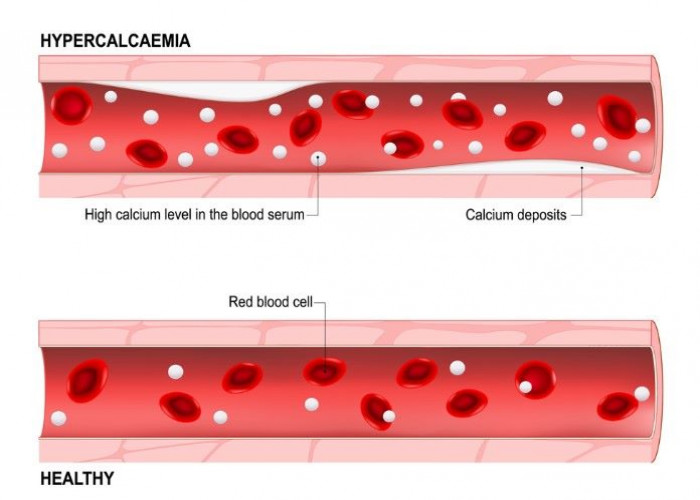 Welcome
Welcome
“May all be happy, may all be healed, may all be at peace and may no one ever suffer."
Hypercalcemia
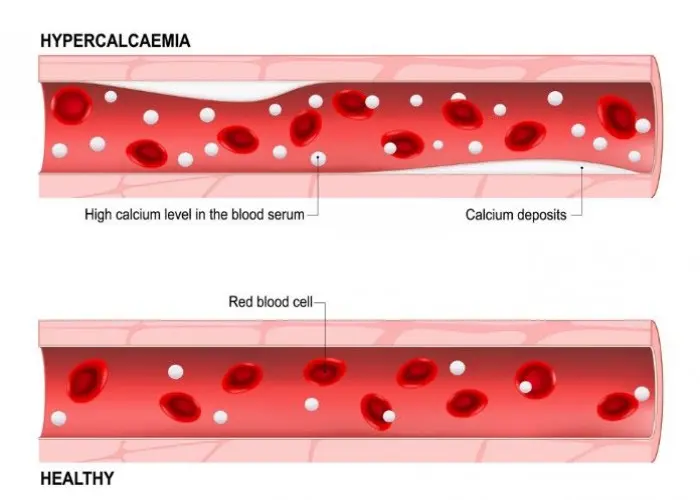
Hypercalcemia is a condition that occurs when there is too much calcium in the blood. It can be caused by a variety of factors, including medical conditions, medications, or supplements.
Some medical conditions that can cause hypercalcemia to include:
- Hyperparathyroidism: This is a condition in which the parathyroid glands produce too much parathyroid hormone, which can cause calcium levels to rise.
- Cancer: Certain types of cancer, such as breast, lung, or multiple myeloma, can cause hypercalcemia by producing substances that affect the regulation of calcium in the body.
- Kidney problems: When the kidneys are not functioning properly, they may not be able to excrete excess calcium from the body, leading to hypercalcemia.
- Vitamin D toxicity: Excessive intake of vitamin D supplements or too much exposure to sunlight can cause vitamin D toxicity, which can lead to hypercalcemia.
Symptoms of hypercalcemia can vary depending on the severity of the condition. Mild cases may not cause any symptoms, while severe cases can cause a variety of symptoms, including fatigue, weakness, constipation, nausea, vomiting, confusion, and muscle weakness.
Treatment for hypercalcemia depends on the underlying cause and the severity of the condition. In some cases, simply addressing the underlying cause can help reduce calcium levels in the blood. Other treatments may include medications to reduce the amount of calcium in the blood or to help improve kidney function.
If you or someone you know is experiencing symptoms of hypercalcemia, it is important to speak with a healthcare provider for an accurate diagnosis and appropriate treatment. Hypercalcemia can be a serious condition, and prompt treatment can help improve outcomes.
Research Papers
Disease Signs and Symptoms
- Frequent urination
- Nausea or vomiting
- Bone pain
- Muscle weakness
- Confusion (Hallucinations)
- Fatigue (Tiredness)
- Irregular heartbeats (arrhythmia)
Disease Causes
Hypercalcemia
Besides building strong bones and teeth, calcium helps muscles contract and nerves transmit signals. Normally, if there isn't enough calcium in your blood, your parathyroid glands secrete a hormone that triggers:
- Your bones to release calcium into your blood
- Your digestive tract to absorb more calcium
- Your kidneys to excrete less calcium and activate more vitamin D, which plays a vital role in calcium absorption
This delicate balance between too little calcium in your blood and hypercalcemia can be disrupted by a variety of factors. Hypercalcemia is caused by:
- Overactive parathyroid glands (hyperparathyroidism). This most common cause of hypercalcemia can stem from a small, noncancerous (benign) tumor or enlargement of one or more of the four parathyroid glands.
- Cancer. Lung cancer and breast cancer, as well as some blood cancers, can increase your risk of hypercalcemia. Spread of cancer (metastasis) to your bones also increases your risk.
- Other diseases. Certain diseases, such as tuberculosis and sarcoidosis, can raise blood levels of vitamin D, which stimulates your digestive tract to absorb more calcium.
- Hereditary factors. A rare genetic disorder known as familial hypocalciuric hypercalcemia causes an increase of calcium in your blood because of faulty calcium receptors in your body. This condition doesn't cause symptoms or complications of hypercalcemia.
- Immobility. People who have a condition that causes them to spend a lot of time sitting or lying down can develop hypercalcemia. Over time, bones that don't bear weight release calcium into the blood.
- Severe dehydration. A common cause of mild or transient hypercalcemia is dehydration. Having less fluid in your blood causes a rise in calcium concentrations.
- Medications. Certain drugs — such as lithium, used to treat bipolar disorder — might increase the release of parathyroid hormone.
- Supplements. Taking excessive amounts of calcium or vitamin D supplements over time can raise calcium levels in your blood above normal.
Disease Prevents
Disease Treatments
If your hypercalcemia is mild, you and your doctor might choose to watch and wait, monitoring your bones and kidneys over time to be sure they remain healthy.
For more severe hypercalcemia, your doctor might recommend medications or treatment of the underlying disease, including surgery.
Medications
In some cases, your doctor might recommend:
- Calcitonin (Miacalcin). This hormone from salmon controls calcium levels in the blood. Mild nausea might be a side effect.
- Calcimimetics. This type of drug can help control overactive parathyroid glands. Cinacalcet (Sensipar) has been approved for managing hypercalcemia.
- Bisphosphonates. Intravenous osteoporosis drugs, which can quickly lower calcium levels, are often used to treat hypercalcemia due to cancer. Risks associated with this treatment include breakdown (osteonecrosis) of the jaw and certain types of thigh fractures.
- Denosumab (Prolia, Xgeva). This drug is often used to treat people with cancer-caused hypercalcemia who don't respond well to bisphosphonates.
- Prednisone. If your hypercalcemia is caused by high levels of vitamin D, short-term use of steroid pills such as prednisone are usually helpful.
- IV fluids and diuretics. Extremely high calcium levels can be a medical emergency. You might need hospitalization for treatment with IV fluids and diuretics to promptly lower the calcium level to prevent heart rhythm problems or damage to the nervous system.
Surgical and other procedures
Problems associated with overactive parathyroid glands often can be cured by surgery to remove the tissue that's causing the problem. In many cases, only one of a person's four parathyroid glands is affected. A special scanning test uses an injection of a small dose of radioactive material to pinpoint the gland or glands that aren't working properly.
Disease Diagnoses
Disease Allopathic Generics
Disease Ayurvedic Generics
Disease Homeopathic Generics
Disease yoga
Hypercalcemia and Learn More about Diseases

Anorgasmia in women

Chagas disease
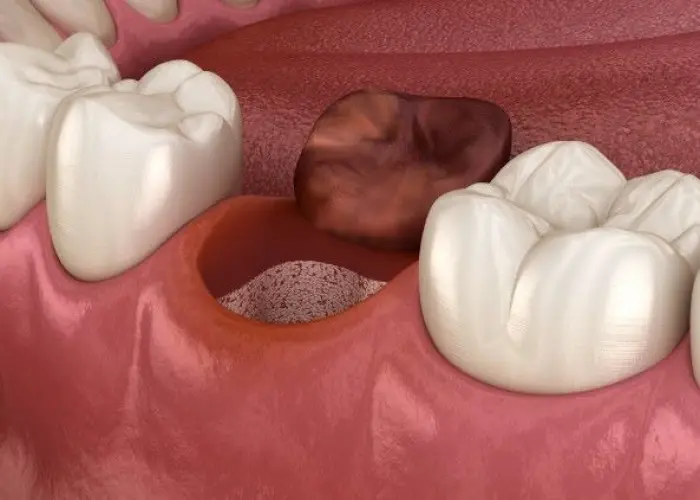
Dry socket

Broken collarbone

Ebola virus and Marburg virus
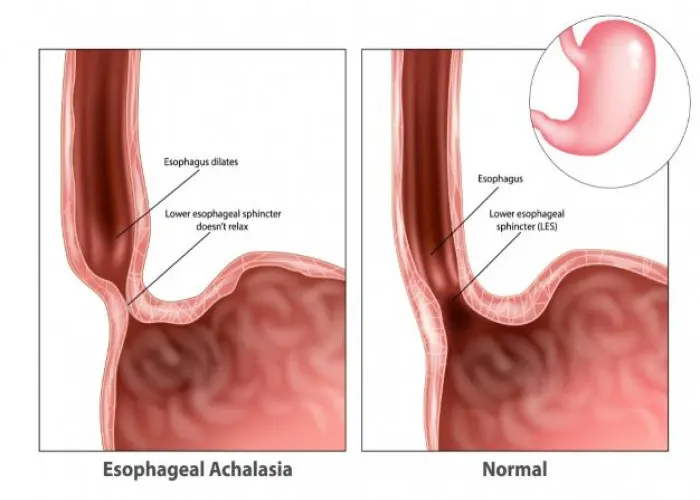
Achalasia
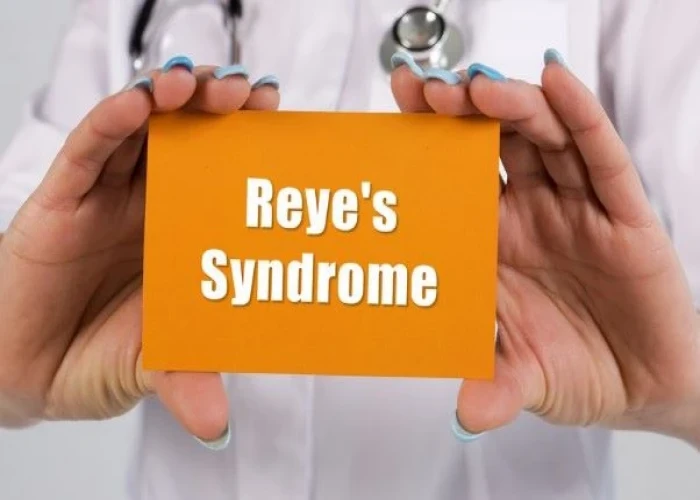
Reye's syndrome

Asthma
hypercalcemia, হাইপারক্যালসেমিয়া
To be happy, beautiful, healthy, wealthy, hale and long-lived stay with DM3S.
